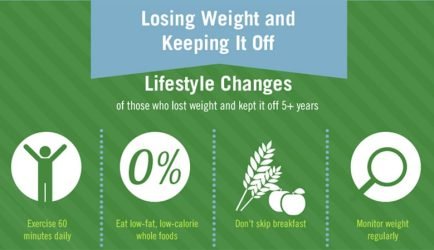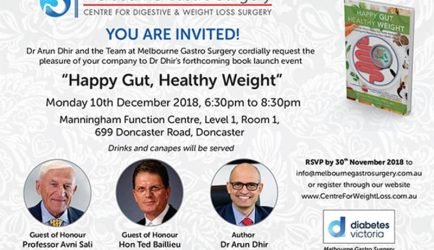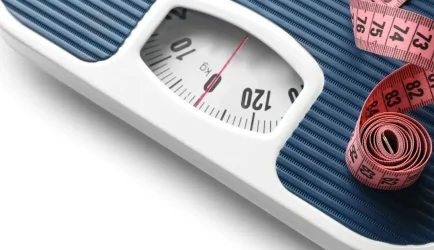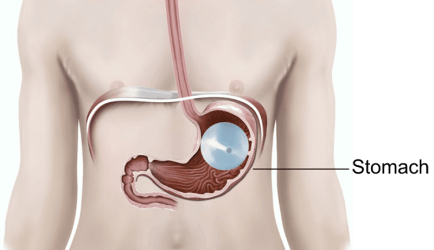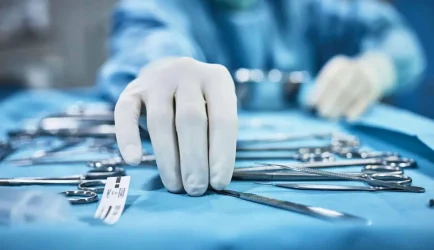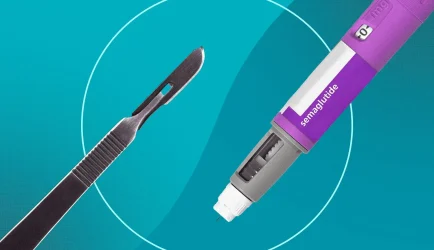7 Science-Backed Ways to Battle the Bulge at Midlife and Beyond
Have you been dieting but not seeing the results you expected? Normal age-related changes to your body may be sabotaging your efforts. Here’s how to get back on track toward reaching your goal.

You never had a problem losing or maintaining your weight before, but now the scale won’t move. It’s frustrating, but you’re not alone! As we get older our bodies don’t respond the same way to weight loss efforts and science has some explanations to offer.
As we age we naturally tend to gain weight to the tune of 1 to 2 kilos per year according to a review by the Agency for Healthcare Research and Quality. That may not seem like much but over time it can lead to significant weight gain and in some cases, obesity, which is considered to be a body mass index (BMI) of 30 or higher. Experts in this space state that obesity incidence starts increasing in one’s twenties and peaks at 40 to 59. However the good news is not everyone will become overweight as they age because body weight is highly influenced by a person’s genetic makeup, level of physical activity and food choices. More on this later….but firstly
Weight Gain and Age: What’s Going On?

Our muscles, hormones, metabolism and other body systems are in flux as we get older. In other words, it’s complicated. But there are five main factors that may be to blame if your jeans feel tighter these days.
1. You’re Experiencing Age-Related Muscle Loss
The amount of lean muscle we have begins to decline by 3 to 8 percent per decade after age 30, a process called sarcopenia, described in a review published by the National Institutes of Health (NIH). You may also lose muscle if you’re less active because of age-related health conditions, such as arthritis, or if you’ve been sidelined with an injury or surgery for several days. All of these [factors] individually do not cause a significant decline but cumulatively they surely do. Why does that loss of muscle matter? Because lean muscle burns more calories than fat, even at rest according to the Mayo Clinic. Unless you’re regularly strength training with weights to maintain and build muscle your body will need fewer calories each day. That makes weight gain likely if you continue to consume the same number of calories you did when you were younger.
2. You’re Undergoing Normal Hormonal Changes
According to data from the National Center for Health Statistics both men and women undergo changes in hormone levels that help explain why middle age is prime time for putting on pounds.
For women menopause — which tends to happen between ages 45 and 55, according to the National Institute on Aging — causes a significant drop in estrogen that encourages extra pounds to settle around the belly. This shift in fat storage may make the weight gain more noticeable and increase the risk of high blood pressure, heart disease, high cholesterol, and type 2 diabetes.
Men on the other hand experience a significant drop in testosterone as they age. It begins to decline gradually around age 40 at a rate of about 1 to 2 percent per year, notes Harvard Health. Testosterone is responsible for among other things, regulating fat distribution and muscle strength and mass. In other words lower testosterone can make the body less effective at burning calories.
3. Your Metabolism Is Slower Than Before
That decrease in muscle mass is likely to slow your metabolism, a complex process that converts food calories into energy, according to the Mayo Clinic. Having more fat and less muscle reduces calorie burning. Many people also become less active with age for various reasons, which further slows the number of calories you burn. Age isn’t the only thing that determines your metabolic rate, however — your body size and sex play a role.

4. You’re Busier With Work
By the time you’ve reached your forties and fifties your career is likely to be in full swing — which is great but brings its own weight loss challenges. For one thing you may be moving less. You may commute an hour or so to and from work, sit at a desk for eight or more hours a day and have so much on your plate that there’s no time to go for a walk or exercise during the workday.
5. You’re Experiencing Major Lifestyle Changes
Some of the reasons for weight gain in middle age have nothing to do with what’s happening inside your body and everything to do with the way life changes as people enter their thirties and forties. One of the biggest changes comes when you start a family. Suddenly the hour you spent at the gym after work is spent with your toddler at home. Later your child’s after-school time is filled with play-dates, homework and other activities that require your attention. You do not seem to have time anymore for yourself. As a result your diet and exercise intentions might slip, causing the kilos to creep on.
5 Science-Backed Ways to Battle the Bulge at Midlife and Beyond
Fear not! There are specific, effective tactics you can deploy to retake control of your weight.
1. Focus on Healthy Foods

Increasing your fruit and vegetable intake and decreasing the amount of fast food added sugar and other processed foods you consume. You’ll also want to prioritize whole foods — vegetables, beans, nuts, whole grains, and fruit — packed with fiber. It will make it easier to control calories. These are high-volume foods — they take up more room in the stomach — and they generally contribute fewer calories to your daily intake.
2. Eating small and often
Learning to adapt your diet to your body’s lower calorie needs is a gradual process. Eating small and often may sound like grazing but it is far from it if you eat healthy and within a time specified window. I recommend eating every couple of hours healthy plant based foods (because they feed your gut bacteria) from 8 am to 6 pm. This allows you better glycemic control during the day and allows you the benefits of intermittent fasting. You’d be surprised to see what a big difference such a small change can make.
3. Stay Well Hydrated
It’s easy to confuse the sensation of thirst for hunger. Stay hydrated with water (rather than with calorie-rich beverages like sodas, fancy coffee drinks, and fruit juices) and you’ll ramp up your metabolism, increasing the breakdown of fat, suggests a review of several animal studies published in Frontiers in Nutrition in June 2016.
4. Find Solutions for Taming Stress
For many people stress leads to stress eating. We are emotional beings and the first thing that our emotions affect is our ability to choose the right food. Do what you need to do to relax, whether it’s with a twice-weekly yoga class or short five-minute meditations throughout the day. Remember alcohol is not a sensible stress management strategy.
5. Give Your Major Muscle Groups a Workout

That loss of muscle mass you read about earlier? Fight back by adding strength training to your exercise routine. You want to preserve muscle mass as much as possible. With more muscle you burn calories more efficiently and you’ll be more active because you have better balance and more stamina. You can download my FREE exercise to Energice routine at the bottom of this blog.




